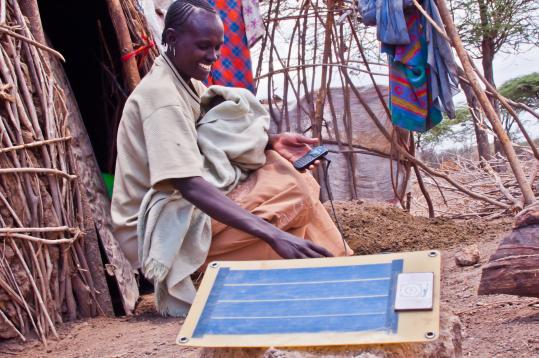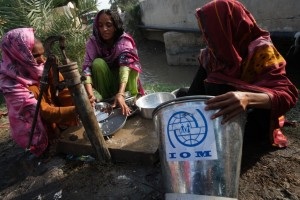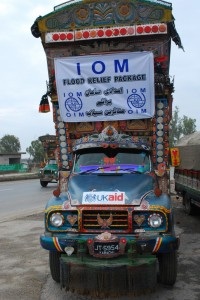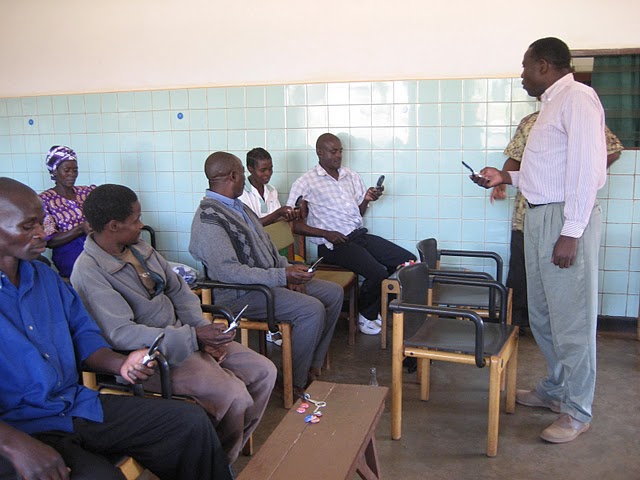Late last week, ActionAid won a Technology4Good Innovation Award for their work using FrontlineSMS to communicate with staff and communities in Isiolo, Kenya, during the response to the recent drought in the Horn of Africa. Together with our partners, Infoasaid, who supported the deployment, we are very proud to be associated with their ground-breaking and crucial work. Bravo ActionAid!
Below is an extract from a blog post describing the programme and the impact FrontlineSMS has had - you can read the full post here.
When disasters strike, people need information as much as they need shelter, water and safety. By providing, the right information, at the right time, from the right source, lives and livelihoods can be saved.
At the same time, if people have access to useful information during disasters they can make their own choices and decisions, and become more active participants in the process of their own recovery and claiming their rights. They can feed back, complain, voice their opinions and, in doing so, hold agencies like ActionAid - and other bodies like local and national government - to account.
Since May 2011, ActionAid has been partnering with a consortium called infoasaid to mainstream communications with disaster-affected communities in our emergency preparedness and response.
As part of the partnership, ActionAid is implementing a pilot project in Isiolo, Kenya, where ActionAid (in collaboration with the World Food Programme) provides vital food rations to over 80,000 people every month. Distribution of the supplies is handled by community members themselves through self-organised “Relief Committees”, and overseen by Food Monitors employed by ActionAid.
Broadly, the project aims to help combat food insecurity amongst communities affected by last year’s drought. It uses innovative technology – FrontlineSMS and Freedom Fone – to transmit information simultaneously to multiple recipients from a laptop computer, and to provide a channel for communities to feed back to ActionAid staff.
The project provided basic mobile phone and solar chargers to 250 Relief Committee members, and 30 Jave-enabled mobile phones to ActionAid Food Monitors, regional office staff and others including warehouse owners and food truck drivers.
A recent review of the project found that it had brought benefits for both drought-affected communities and ActionAid, by;
Boosting household income
Edward, Relief Committee Secretary: “A man asked ‘how is the livestock price in Isiolo?’ I told him it is lower, he immediately called people in Nanyuki so that they could go to buy [in Isiolo] and sell in other towns. He bought so he could sell at higher price.”
Improving relations between communities and ActionAid
Fatumah, ActionAid Food Monitor: “We used to argue. The community wanted to know why I had not told them about the distribution dates. Now they have time to prepare. Within 30 minutes we are done. Before we had to ask neighbouring villages to help with off-loading - that could take 2-3 hours.”
Increasing the speed and efficiency of food distribution
Community member in Oldonyiro: "There is a big change now. Long before, food used to stay overnight because there was no communication. Now we get information immediately even when the trucks are still in Isiolo. We are aware that food is arriving tomorrow, and we go ready for distribution."
Food Monitors also report that the use of Frontline SMS has reduced the need for frequent travel to rural communities for face-to-face meetings – in one case from 24 per month to just 12 – saving time and money.
Enabling community members to better plan their time
Halima, community member: “In the past we saw the [food] trucks arriving and we might have gone to attend to other works. Now, we get [information] one or two days before, we can put off our jobs and come to collect food.”
Providing information on when food distributions will arrive means children no longer have to leave school to tell parents the trucks are on the way, as was the case previously.
Enabling communities to link with the outside world
Salesa, community member: “When one [child] was bitten by the snake we used the phone to call the vehicle to help take them to hospital.”
Improving the speed and efficiency of data collection
Thomas, Food Monitor: “The Frontline SMS forms are very easy to fill. They do not consume even 10 minutes. The information goes to the hub and…it is secure. Before, I gave the information on paper which can disappear.”








